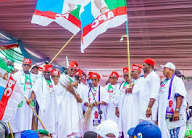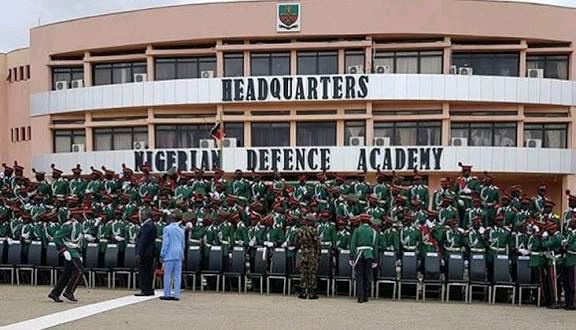Lagos-Calabar Coastal Highway Costs Less Per Km Than Eleme-Onne, Abuja-Kano Roads, Says Umahi
The Minister of Works, David Umahi, has stated that the Lagos-Calabar Coastal Highway is more cost-effective per kilometre than other major federal road projects, including the Eleme-Onne and Abuja-Kano roads.
Umahi made this assertion during an interview with TVC News, amid rising public scrutiny and political criticism of the project.
Former Vice President Atiku Abubakar recently claimed the highway would cost as much as N8 billion per kilometre, sparking nationwide debate.
In response, Umahi clarified that the actual cost is around N4 billion per kilometre, and not nearly as high as alleged.
He attributed the misunderstanding to differences in the scale and technical requirements of the project.
According to Umahi, the Lagos-Calabar Coastal Highway is being constructed with a 10-lane design—five lanes in each direction—and a total width of 59.7 metres, including shoulders and median. Unlike many roads in Nigeria that are built using asphalt, the coastal highway will be constructed with reinforced concrete, which the minister said is more suitable for the terrain and will require less maintenance over time.
“This is not just a highway; it’s a long-term national asset. Concrete roads are more resilient, especially in coastal environments, and they offer better value in the long run,” Umahi said.
He added that other projects, such as the Abuja-Kano and Eleme-Onne roads, despite being more expensive per kilometre, use flexible pavement and are narrower in scope.
The minister also clarified the funding model for the highway. He explained that the project is being executed under an Engineering, Procurement, Construction and Financing (EPC+F) arrangement, with the federal government contributing only 15 to 30 percent of the funding.
The contractor, Hitech Construction Company Ltd, is responsible for sourcing the remaining funds.
He dismissed allegations of procurement irregularities and assured Nigerians that all procedures followed due process.
“We’ve followed all procurement laws and processes. The Bureau of Public Procurement and other regulatory agencies have been involved every step of the way,” he said.
The highway is expected to be completed in phases over an eight-year period.
Umahi said work is already underway on several sections and expressed optimism that the project would be completed within the tenure of President Bola Tinubu, should the administration secure a second term.
While the highway has been praised for its potential to transform transportation and economic activity along Nigeria’s southern corridor, it has also faced criticism over its cost, environmental impact, and timing.
Nonetheless, Umahi insisted the project will be a game-changer, connecting Lagos to Cross River and opening up multiple coastal states to investment and development.
The Lagos-Calabar Coastal Highway, when completed, will span over 700 kilometres, cutting across several states including Lagos, Ogun, Ondo, Delta, Bayelsa, Rivers, Akwa Ibom, and Cross River. It is one of the most ambitious infrastructure undertakings in Nigeria’s recent history.







